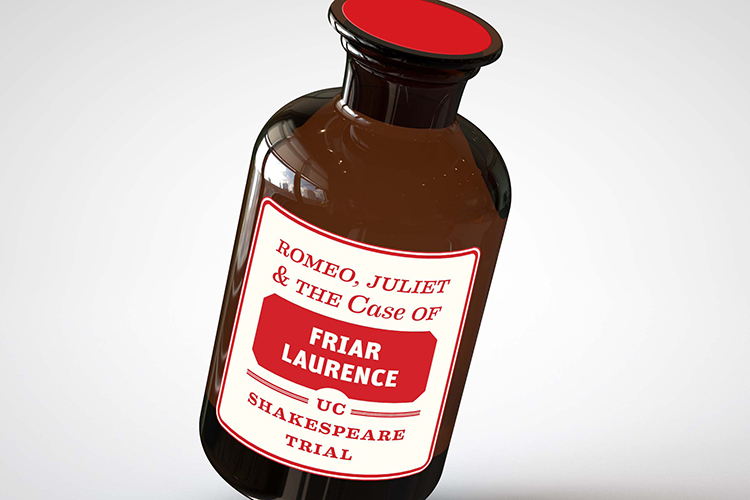Berkeley Law dean to prosecute friar in Romeo and Juliet mock trial
This Saturday at Freight & Salvage, Erwin Chemerinsky will bring legal proceedings against Friar Laurence, with the audience as jury.

February 28, 2022
Erwin Chemerinsky, dean of Berkeley Law, who has argued cases before the U.S. Supreme Court, will be the prosecutor at a most unusual venue this Saturday, March 5 — Freight & Salvage, a nonprofit performance venue in downtown Berkeley. There, the top expert in constitutional law, federal practice and civil rights and liberties will conduct a mock trial, bringing legal proceedings against Friar Laurence, a character in Shakespeare’s “Romeo and Juliet.” The event, Romeo, Juliet, and the Case of Friar Laurence, is at 1 p.m. — tickets are still available — and will be streamed through this YouTube link.
Actors from UC Irvine’s New Swan Shakespeare Company will play Romeo, Juliet and the friar. Chemerinsky will be joined by Stanford Law School professor Bernadette Meyler, who will defend the friar, and retired U.S. District Court Judge Andrew Guilford will preside. The audience will serve as jury.
The friar will be charged with involuntary manslaughter and child endangerment. In Shakespeare’s play, the friar is a kindly cleric who helps Romeo and Juliet, who are from feuding families, by performing their wedding in secret and being their mentor. But he also winds up advising the young lovers to, as a Jan. 14 Berkeley Law article describes, “follow a course of action involving controlled substances, feigned death, covert travel and forced entry into a family crypt.”
This isn’t the first time Chemerinsky has taken part in a mock trial based on a Shakespearean play. In 2020, he played a similar role in “The Shylock Appeal,” based on “The Merchant of Venice,” at Freight and Salvage, along with then-UC Irvine Dean L. Song Richardson, Guilford, and four actors from the New Swan theatrical group. He’s also appeared in productions like this based on Shakespeare’s “Hamlet” and “Julius Caesar.”
“The Shakespeare plays pose enduring, important questions about the law,” Chemerinsky told Berkeley Law writer Andrew Cohen. “The trials provide an entertaining way to explore these timeless issues.”